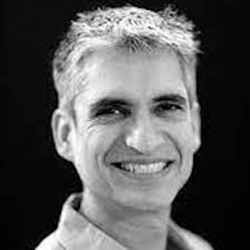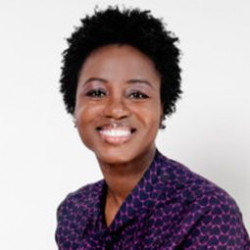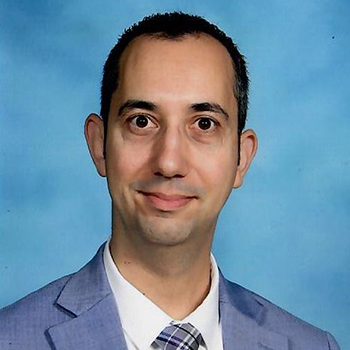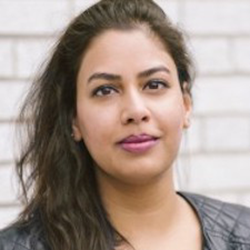Ashkan Rahmani
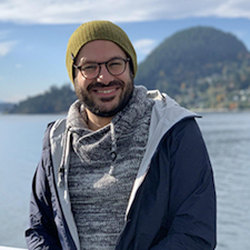
Social Worker, Vancouver General Hospital
Social Work
Why did you decide to be a Social Worker?
While I was doing my PhD in medical physics, I became more interested in how our brains process psychological trauma. I took some time off school and explored working as a community educator, which reified my interest in exploring how gender and race intersect with exposure to trauma and the care (or lack thereof) that is available to people after exposure to trauma. So I quit my PhD and pursued Social Work after a couple of years of working frontline.
Can you tell us about your social work journey and how it has led you to your current position?
I feel lucky to have had the opportunity to learn from such a brilliant group of teachers in my SW education. I am especially humbled by the group of caring, intelligent, and progressive teachers that I learned from in the York MSW program. I would not be who I am without racialized and Indigenous women lifting me up and I am immensely indebted to every single one of them.
I worked in a couple of different positions after graduation before I started in my current position but as the number of cases of COVID-19 went up, I decided to switch to hospital social work. I was hesitant if a ‘clinical’ position would be a good fit considering I did not attend a ‘clinical’ school. However, the political social working is not so different from providing decent clinical social working (thanks to Nicole Penak for giving me this advice) so I encourage York graduates to be more confident in the skills that we learn from York. Our training at YU is very much needed in the frontline and makes a big difference in the way we work with marginalized people in these capacities.
Where do you work, what’s your job title, and can you provide a little information about what a typical work week is like for you?
I work in the acute care unit in Vancouver General Hospital as A Social Worker. My work week is one of the most interesting parts of my job because it is different every single week. It is very hard to be bored!
I find working in acute very interesting and fast-paced. There are lots of opportunities for interdisciplinary collaboration (e.g. Occupational Therapist, Dietitian, Physio, Nursing, etc.), which means there are lots of opportunities for growth at work.
The population that comes to acute care is very diverse. Because of the diversity of clients that end up in acute care, my work is almost everything that social workers do from housing and income assistance to working with patients and families to make sure patients have access to dignified end of life care.
Can you tell me about your current position and what you love and what are some of the challenges?
Working in acute care (and the COVID+ unit) has been a humbling experience. Holding a tablet so a family can say goodbye to a loved one and the mere presence in that room in such an intimate moment is a meaningful and spiritual experience. That being said, the work can be challenging so more self-care is highly recommended.
I also love that this is the view from where I have my lunch:
What advice would you give to new social work graduates?
I have a message for my racialized peers: Regardless of where you apply for work, make sure you take space and highlight your accomplishments. The predominantly white institutions (PWI) need our expertise so be confident about what you have to offer! There are so many opportunities for social workers to support clients in PWI that YU grads can make a big difference in people’s care.
Never hesitate to ask for help from other social workers/peers. Every one of us learned what we know from someone at some point and most of us would be happy to support new graduates when caseload allows.
What’s the career highlight you’re most proud of?
I am very proud of having the privilege of supervising students (especially York students) in their field placement. I am most proud when they contact me later to let me know they want me to be their reference or to let me know they got their dream job! So proud of every student I have worked with and I am humbled by the talent and competence of the YU students I have supervised.
Can you provide any tips for new grads as they start thinking about their next steps?
I was lucky that I was able to relocate and used the recruitment service that my current workplace offered but I wish I used the career centre services more when I was at York to prepare for job hunting before I graduated.
Lastly, a lot of learning will happen on the job. Admitting that we don't know something needs a bit of humility and a lot of safety. I looked for a community where I could ask for help safely and it really helped me in my practice so far. I hope this helps some of the new grads too.
Browse more Alumni profiles
Communication Studies
Bachelor of Arts (BA) - Honours
2003
Business Expertise Senior Consultant, Government of Canada

